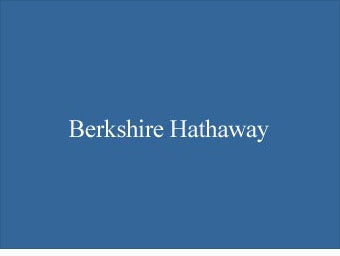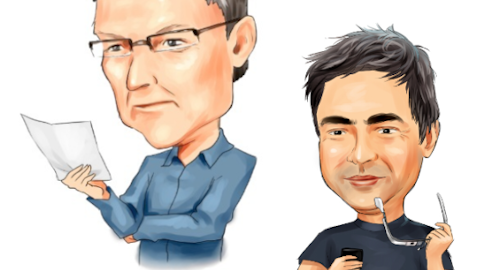You are what you eat, and you also eat what your food eats. That´s why the organic and natural food moment is gaining so much popularity around the world. Things are quite similar in financial markets. When you invest in a company, you are also buying what that company buys, and this can have big implications in terms of shareholder returns.
The best capital allocator in the world
In his 2012 letter to shareholders, Warren Buffett recommends the book The Outsiders, by William Thorndike, described by the Oracle of Omaha as “an outstanding book about CEOs who excelled at capital allocation.”

Berkshire Hathaway Inc. (NYSE:BRK.B) is one of the companies profiled in the book, which comes as no surprise considering that Buffett is one of the best capital allocators in corporate history.
Warren Buffett didn´t achieve his amazing success by running a specific business in a certain industry. His big talent is capital allocation and that´s what makes Berkshire Hathaway Inc. (NYSE:BRK.B) so special. Berkshire has access to cheap financing due to the float generated by its insurance operations, and Buffet invests that money in carefully selected high-quality opportunities.
From his 2004 letter to shareholders:
“Float is wonderful – if it doesn’t come at a high price. Its cost is determined by underwriting results, meaning how the expenses and losses we will ultimately pay compare with the premiums we have received. When an underwriting profit is achieved – as has been the case at Berkshire in about half of the 38 years we have been in the insurance business – float is better than free. In such years, we are actually paid for holding other people’s money.”
Berkshire Hathaway Inc. (NYSE:BRK.B) owns a wide collection of extraordinary businesses in different industries, and the evolution of sales and earnings at these companies is certainly very important. But the importance of capital allocation cannot be overstated when it comes to explaining Berkshire´s success over the long term.
A magic kingdom
The Walt Disney Company (NYSE:DIS) has a diversified business model that makes it very different from other players in the entertainment industry. The company monetizes its characters and franchises across multiple platforms: movies, shows, home videos, theme parks, merchandising, etc.
This provides a lot of leverage when it comes to making money from its assets, and it means that a company like Pixar, for example, is more valuable as a part of The Walt Disney Company (NYSE:DIS)’s empire than on a stand-alone basis.
The company has made a series of big acquisitions over the last years, including the purchase of Pixar for $7.4 billion in 2006, Marvel for $4.24 billion in 2009, and Lucasfilm and the Star Wars franchise for $4.05 billion in 2012.
Pixar and Marvel have delivered fantastic box office results so far, and The Walt Disney Company (NYSE:DIS) will get to benefit from those blockbusters for years to come. Considering the company´s strength and management’s track record when it comes to acquisitions, investors in the company have good reasons to expect solid results from the Lucasfilm deal too.
More than coffee
Starbucks Corporation (NASDAQ:SBUX) is the global leader in specialized coffee, but the business is about much more than just coffee. The brand is an invaluable differentiating factor for the company; Starbucks provides a unique customer experience that has been nourished through years of attention to detail. Things like the taste and smell of the products, store decoration, and customer attention are hard to measure and quantify, but they do have a very real economic value.
This allows Starbucks Corporation (NASDAQ:SBUX) to charge premium prices for its products and generate superior profit margins for its shareholders, so expanding the Starbucks brand and customer experience to different lines of products sounds like a smart strategy for growth.



